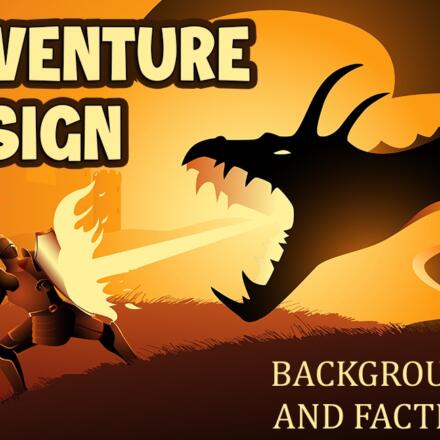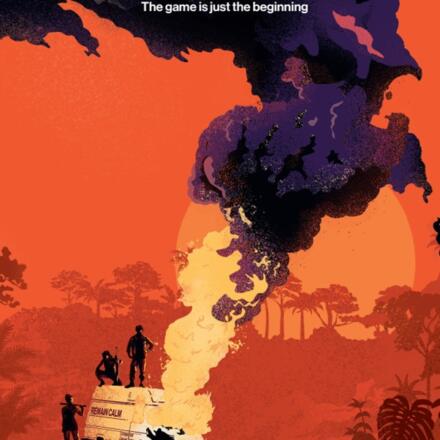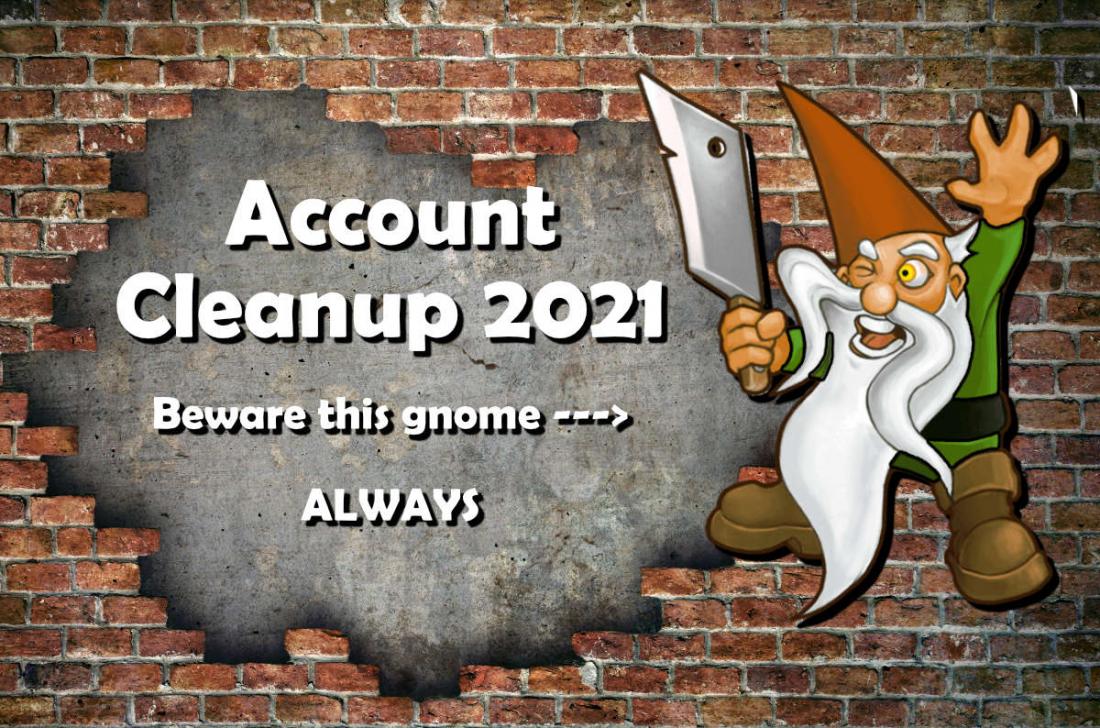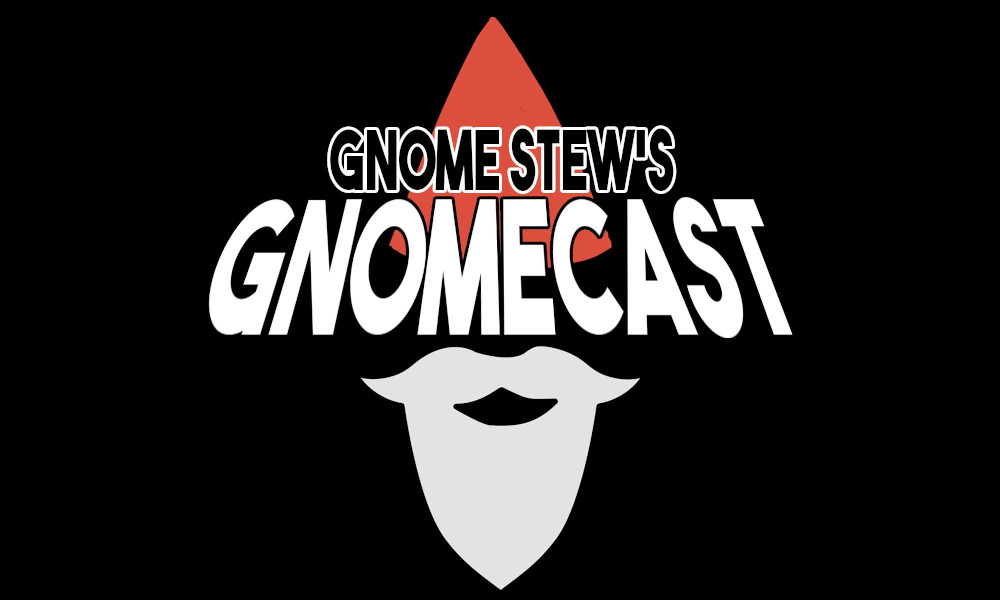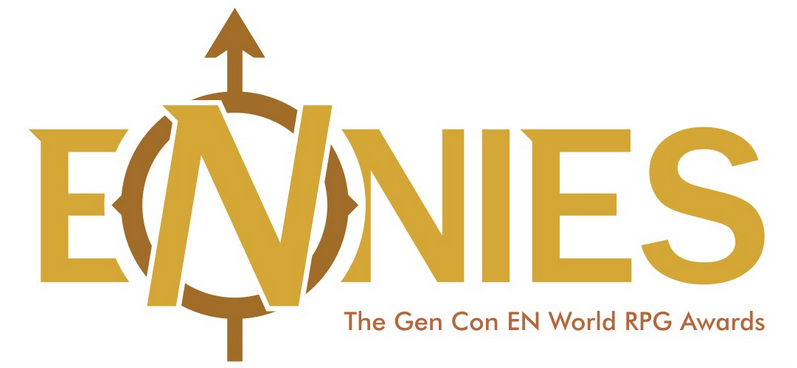Recently, my Cortex Prime campaign, Aux, concluded. The campaign ran for a year and seven months. I wrote about the game at its beginning here: No Combat, No Problem, and talked about getting into the last phase of the campaign here: Letting Them Enjoy Their Power. I knew that we were getting close to the end of the campaign, based on the progress through the last story arc, when we sat down to what would be the last session. We began to play and then one of the players made a successful die roll, in order to achieve god-like knowledge of the universe, and then I realized that the campaign was over. I checked the time and asked the players if they wanted to finish out the campaign now or go one more session. There was plenty of time left in the session, and we decided to finish the campaign. It came on suddenly, and when everyone left that night, I had some feelings about the campaign being over.
So let’s talk about ending campaigns and the feelings that come with them.
Not all Campaigns End
Ending a campaign is not as easy as it may sound. The fact is that most campaigns just stop, rather than have an ending. There are tons of reasons for this, and I have stopped dozens of games over my tenure. What is more rare is ending a campaign.
We are going to define ending a campaign as a campaign where the main story arc reaches a conclusion. This typically means some kind of climatic scene that then triggers the denouement, and concludes the story arc. If you have a campaign arc, that also needs to wrap up, but typically concluding the current story arc also resolves the campaign arc.
It is possible to end a campaign by ending the story arc, but a more satisfying ending is to have an epilogue, where we get to find out what happened to player characters and NPCs after the story concludes.
Knowing It’s Time
Like many things in life, a campaign is made to end. Campaigns were not made to go on forever. If we don’t end them on a high, we run the risk of extending a campaign like a TV show past its prime, and then things get weird (I am talking to you Prison Break).
If your campaign is using story/campaign arcs, then the logical ending will be at the conclusion of the arc. What you may need to think about and/or discuss with your players is what constitutes the end of your arc.
Example: In Aux, the last arc was about a subspace fissure that was threatening to destroy the characters’ home system. The solution was for one of the characters to achieve this god-like scientific knowledge in order to repair the tear. Originally, I was planning to have the last session be about repairing the tear, but when I talked to the players, they thought the more meaningful climax would be obtaining god-like scientific knowledge, and that repairing the tear would be more trivial after having that knowledge. So I adjusted the story accordingly to have the climax be obtaining the knowledge and repairing the tear as the denouement.
With campaigns built on story/campaign arcs, once you know what events will lead to the conclusion of the story, you need to do some work to make that story dramatic and exciting. A topic for a future article.
If your campaign is more episodic, then your ending is going to be deciding how many more episodes you want to play before ending the campaign. In cases like this, you may want to make the stakes of the last episode a bit higher or have that episode put the characters in a place where the campaign can conclude (i.e. find a horde of treasure, capture an important guy, end a major threat, etc).
Saying Goodbye
Regardless of your campaign setup, plan to do an epilogue, either at the end of the session or in its own session. The denouement of the story has some satisfaction but an epilogue gives a greater degree of closure. There are no set rules on epilogues, but my preference is to do them as a shared narrative, where everyone gets a turn to narrate what happens to their character.
Here are some tips for a good epilogue topics:
- Conclude any unresolved character or story arcs
- Discuss what the characters do “next”
- Discuss what the more important NPCs do “next”
- Do any new relationships form, change, end
- Discuss offspring
- Discuss the impact of the end of the arc on the world, history, etc.
The GM can facilitate this activity, players should have narrative control over their characters, and the group can narrate for NPCs and other elements. As with other shared narrative activities, try not to trample or negate anyone’s ideas, offer suggestions, make sure everyone is heard, and incorporate ideas as you go. (Also could be its own topic).
In Aux, our epilogue played out in several rounds. We looked at what the characters were doing a year later, 5 years later, and 20 years later. The rounds allowed us to conclude the immediate loose ends, look at the characters’ next phase of life, and then see them retire. It was immensely satisfying. The rounds were a mix of third-person narration and in-character discussions.
If you do have time, have a wrap party or some kind of campaign conclusion ceremony. See this classic article for more details: Throw A Wrap Party And End Your Campaign In Style.
The Feels
The end of a campaign comes with a mix of feelings. There will be excitement that comes with the resolution of the climax and bringing the story to the end. There will also be feelings of pride and satisfaction for bringing a campaign to a conclusion. There can also be a feeling of loss that this is the last time you will get to play these characters in this world.
That feeling of loss is natural, we get this same feeling anytime we reach the end of a book series, comic run, movie, or TV show. It’s not an awesome feeling but like with all feelings, it’s not good or bad. If we want to look at the positive of it, that feeling signifies that we are going to miss these characters and this world, which means that these meant something to us, and that, from the point of the campaign, is a success.
When it comes to feelings, especially the one of loss, give yourself the space to have these feelings, give yourself some time to process them, and if you feel comfortable, talk about them.
For Aux, when I realized that we were in the last session, my feelings came on quickly. For sure I was excited, the tension and drama of the climax were intense, and I had that feeling of excitement. During the epilogue and after everyone left, is when the feeling of loss came on. It took me a good week to move past the feeling of loss and move into a feeling of satisfaction.
What Next
Once your campaign is done, comes the question, “What’s next?” Are you going to run another campaign right away? Is someone else going to run something? Are you going to switch to one-shots? Are you going to disband the group?
There is no right answer to this. I think in my tenure, I have done every one of those things after the end of a campaign. It is a decision you make with your group.
For me, I am taking a break, and someone else in the group is going to run the new Marvel game for a while. I will likely take the GM seat after they are done, but I am not in a rush. I am ok being a player for a while.
That’s A Wrap
Ending campaigns is a bittersweet activity. The excitement and satisfaction of ending a campaign are mixed with the feeling of loss as you say goodbye to the characters and world. Having an epilogue will help to bring a sense of closure, and giving yourself some space to process your feelings about the game, will allow you to end the campaign and move on to your next adventure.
How are you at ending campaigns? Do you have a way you like to do epilogues? Do you feel a sense of loss when concluding a campaign?


